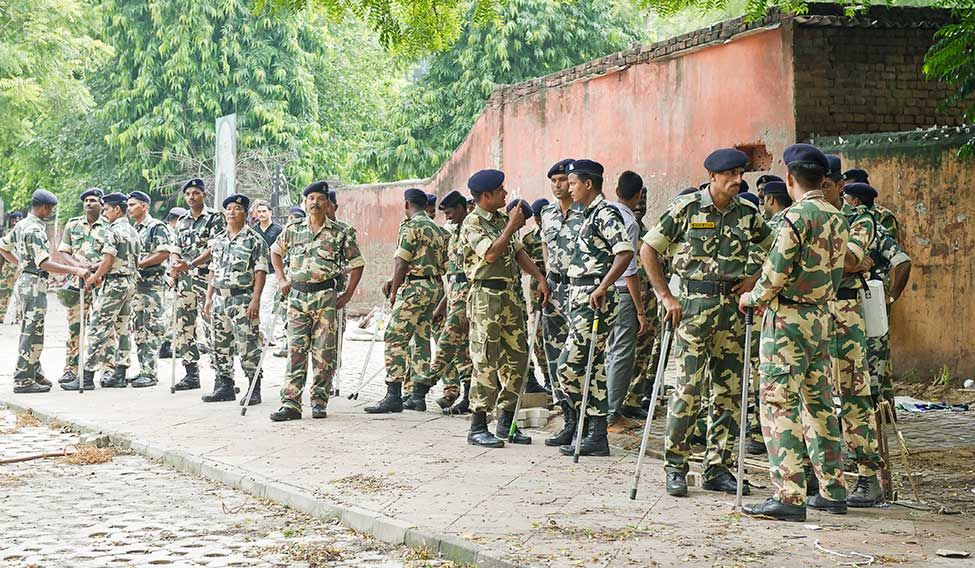Even as the Union government is yet to announce One Rank, One Pension (OROP) for military veterans, paramilitary forces have come forward with a similar demand. This has added to the government's misery, with ex-servicemen seeing it as a government ploy to deny them OROP.
Though the government denied having any plans to grant OROP to retired paramilitary personnel, there has been an outcry from the paramilitary forces, which are under the direct control of the home ministry. “We are deeply hurt by the remarks of certain retired Army generals, [who are] spreading rumours that the government is using central paramilitary forces as proxy to deny OROP to defence forces,” said V.P.S. Panwar, a retired inspector general of the Central Reserve Police Force. “We have never opposed any entitlements to defence forces and we have our highest regard for them and would like to be a support to them whether in war or peace.”
Panwar is also the chairman of the national coordination committee of the Ex-Central Paramilitary Forces (CPMFs) Personnel Welfare Associations, which put forth its demand for OROP before the Seventh Central Pay Commission, the parliamentary standing committee on home affairs and Home Minister Rajnath Singh. Claiming that the CPMFs are also armed forces as their genesis is the same as that of the defence forces—Article 246 of the Constitution—the committee said the OROP was unavoidably relevant to both the defence forces and the CPMFs. “This is more so because they suffer social isolation and perpetual risk to their life throughout the service. They are also deprived of the normal comforts of family life,” said Joginder Singh, retired inspector general of the CRPF.
In its representation to the pay commission, the committee argued that CPMFs should be granted OROP on par with Army personnel. But the home ministry, it said, was reluctant to plead their case on the ground that defence personnel “retire at early age”. “But the living expenses of the retirees of the same rank do not reduce with age, it rather increases on account of old age disabilities and ailments,” the committee stated. “Thus, this problem is universal, whether the retiree is from defence forces or CPMFs.”
Also, their service conditions and risk factors are no different from that of defence forces. “Our personnel risk their lives even during peace time,” said a serving deputy commandant of the Border Security Force. “We are guarding the border 365 days. Most of the border stretches with Pakistan and China are unsettled. Armed hostilities on the borders are perpetual events and we face them. So, how is our job different from the personnel of Army, Navy and Air Force?”
The general feeling among paramilitary personnel is that they have shared much of the national burden during the last few decades, be it internal security, fighting terrorism, Naxalism, hostility or containing social upheavals across the country. Despite this, they have been provided with the least of service benefits. “Many of the sufferings of the personnel are shocking. They do not even have a regular pension plan and have been included in contributory pension scheme since 2004,” said Panwar. Even when they die in service to the nation, they are not treated as martyrs. Recently, a PIL to this effect was filed in the Delhi High Court and a notice has been issued to the Union government.
“It seems the age-old secretarial mindset—CPMFs, being part of civil services, cannot be equated with defence forces and the defence forces must be kept one step above others—needs to be corrected,” said a Indo-Tibetan Border Police officer. “The perception that if the defence forces are equated with the CPMFs, their morale will dwindle is incorrect.”






